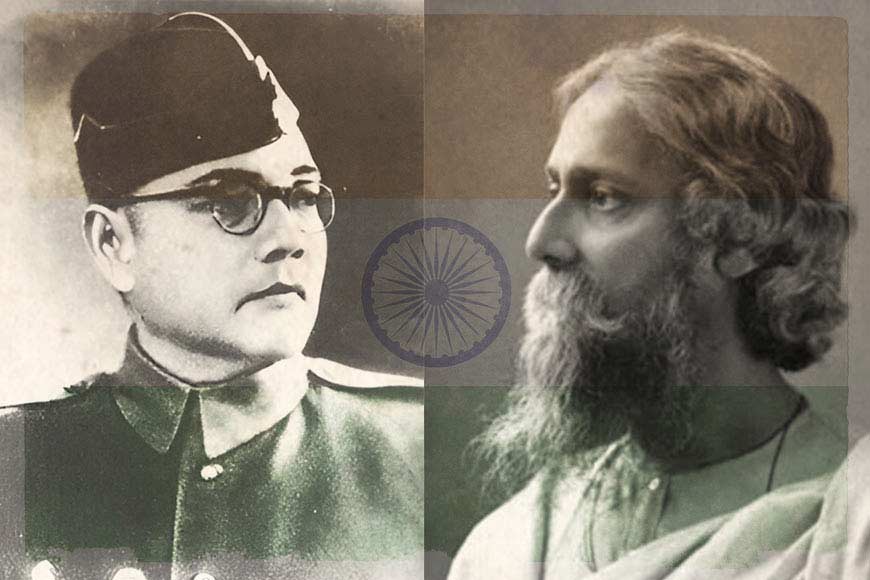Sub Sukh Chain: Bose rewrote Tagore’s song to avoid religious biases— GetBengal story

The leaders of pre-independent India showed how secular politics should be practiced. Netaji Subhas Chandra Bose replaced ‘Vande Mataram’ to avoid religious biases, keeping harmony and strengthening the spirit of unity among all Indians.
During pre-independence, Indians used to sing “Vande Mataram” for protests and political assemblies. Since the song includes various Hindu metaphors, muslims were not comfortable with the song. Therefore, a secular song, “Subh Sukh Chain,” evolved.
Bose was truly aware of that problem and decided to choose Rabindranath Tagore’s “Bharoto Bhagyo Bidhata” (Jana Gana Mana). At that time, Lakshmi Sahgal, a member of the INA (Indian National Army), favoured the selection of Jana Gana Mana and arranged to be sung at a women's meeting where Bose was also present. Moreover, the song had been sung at the sessions of the Indian National Congress.
However, Subhas Chandra Bose was not completely in favour of singing Tagore’s song due to its Sanskritized Bengali and therefore decided to create a new song, based on this original song of Tagore. On 21st October 1943, when the Indian National Army (Azad Hind Fauj) declared the formation of the Provisional Government of Free India, the song was adopted as its official national anthem. In addition, the song became a crucial part of all political meetings along with the final assembly when Bose departed.
When Netaji was shifted to Southeast Asia from Germany in 1943, he collaborated with Mumtaz Hussain, who was a writer with the Azad Hind Radio, Colonel Abid Hasan Safrani of the INA, and Capt. Ram Singh Thakuri to write and compose the fully Hindustani song, “Subh Sukh Chain”. It was Capt. Ram Singh, who was asked to add a martial tune to this song.
The song’s opening verse was:
“Shubh sukh chain ki barkha barse, Bharat bhag hai jaga./Punjab, Sindh, Gujarat, Maratha, Dravid, Utkal, Banga, Chanchal sagar, Vindhya, Himalaya, nila Jamuna, Ganga.”
(May the rain of peace and happiness shower upon us. India’s fortune has awakened. Punjab, Sindh, Gujarat, Maratha, Dravida, Utkal, Banga, the restless ocean, Vindhya, Himalayas, the blue Yamuna, the Ganges.)
On 15th August 1947, the historic day of Independence, when Jawaharlal Nehru unfurled the National Flag at the Red Fort, Capt. Ram Singh was invited to play the tune of Subh Sukh Chain with his orchestra group. However, on 24 January 1950, Rajendra Prasad, the first president of Independent India, finalized “Jana Gana Mana” as the national anthem of India.










